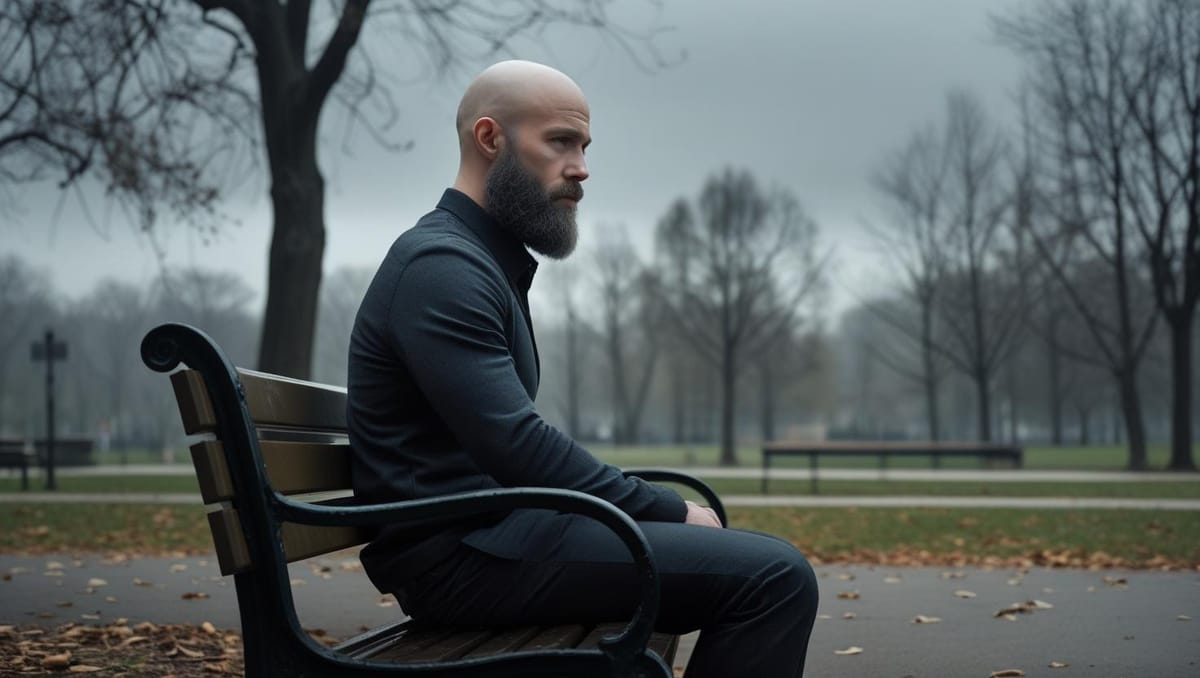The Reality of Being a Spiritual Abuse Whistleblower
Speaking out about spiritual abuse is the worst. It results in deconstruction, depression, loneliness, anxiety, and stress. Yet, through the darkness, there is light.

Over the past six weeks, my social media engagement and personal communications have surged dramatically. Emails, texts, and messages from people I haven't heard from in years have flooded in—all triggered by my decision to share my family’s experience with spiritual abuse while attending Austin Stone Community Church in Austin, Texas, with the Bodies Behind the Bus Podcast.
Since I began speaking out, some of the backlash I’ve received is sad but not unexpected. Some individuals have accused me of using my story to build a platform, seek sympathy, or attract attention. The truth is, these past six weeks have been incredibly challenging. Some days I am filled with gratitude, hope, and encouragement. Other days, I grind my teeth, try not to have a panic attack, and struggle to even get out of bed.
My family couldn’t have known this back in 2022, but we’ve been able to handle the last six weeks fairly well, all things considered, and because of lessons learned from previous experiences with spiritual abuse. You see, in February of 2022, I joined the staff of a church where congregants were experiencing spiritual abuse and trauma at the hands of the pastor and elders.
The Hope Community Church Disaster
In 2021, I joined the staff at Hope Community Church in Austin, which has since closed. From my first day on staff, multiple congregants reached out to express significant spiritual abuse involving the pastor, elders, and the pastor's wife. Congregants, already suffering and trying to speak out, but getting nowhere with leadership, sought my help after their attempts to address these issues internally failed. Despite my raising these concerns repeatedly, leadership dismissed them, gaslighting both me and the victims.
You can read more about what happened at Hope in this article, Conflict at diverse Austin church leads to claims of spiritual abuse reported on by Religious News Service. You can also read my timeline of the experience below:

When I tried to hold leadership accountable, I was blindsided by attempts to terminate me. Eventually, I was given an ultimatum: conform to the pastor’s way or leave. I chose to leave, plunging my family into the darkest season of our lives.
The Personal Cost of Whistleblowing
The belief by some that sharing my most painful wounds inflicted by the Church is a strategy to elevate myself is beyond absurd. It would be laughable if it weren’t so tragic. One person asked if I was speaking to Bodies Behind the Bus as a way to start my path back into ministry. That’s a hard no.
Sadly, the reason anyone would think that whistleblowing would be a mechanism to build a platform, draw attention to myself, or ‘try to make a comeback’ is because this is behavior we’ve seen from countless ‘celebrity pastors.’ It’s tragic, it’s pathetic, and it is not something I have the least bit of interest in.
Truth is, being a whistleblower is emotionally devastating. It comes with sleepless nights, guaranteed deconstruction, grief, and mourning. It’s worth noting this hasn’t simply been my experience. This is true for my family, who suffered immensely—my children were devastated to lose friends, and at times, even resented me for speaking out.
We lost nearly all our spiritual relationships. When I say ‘nearly’, I’m talking 99% of the relationships we had were gone overnight. As a former pastor, my entire social and professional circle was rooted in and connected to the church. This loss led to deep feelings of isolation, depression, stress, and anxiety.
I Don’t Regret Speaking Out and Would Do It Again
Despite the pain, I would do it all again. Speaking out against spiritual abuse is costly. Relationships are destroyed, reputations attacked, and personal experiences invalidated. Yet, it’s my conviction that speaking out against abuse of any kind is necessary. I’ve found the quote, often misattributed to Edmund Burke, especially powerful and encouraging to me:
“Evil wins when good people do nothing.”
What sustained me was the support from fellow whistleblowers and my family’s improved emotional health. Unlike my isolated experience at Hope, my involvement with the Bodies Behind the Bus team provided a supportive network between myself and the other storytellers involved in the series, allowing us to lean on each other.
I’m genuinely so grateful for my wife, Angela, and our four kids, who have experienced every bit of heartache and pain with me. They are a source of strength that I couldn’t possibly live without.
I’m also thankful to B, Ben, Kelley, Kenny, Johnna, and the Bodies Behind the Bus team. Each storyteller gave me hope, courage, strength, and the confidence that our stories together can make a meaningful difference.
When folks reached out to Bodies Behind the Bus to attack me, Johnna and the team stood by me. They could have said my involvement would bring too much negative response to the series, or my story wasn’t worth sharing because of my previous involvement at Hope. But they didn’t. They did what few people in my four decades on this earth have done: they stood up for me and stood by me. For that, I am eternally grateful.
Longing for Change to Come
Although Hope Community Church no longer exists, Austin Stone remains a large institution. However, our stories are empowering others to speak out and find the strength they may not have known they had. I’ve heard people thank us storytellers for giving them language to express their own painful experiences. We’ve had people openly share how, for the first time, they don’t feel alone in what they experienced.
Allow me to say this plainly: speaking out about spiritual abuse is the worst. It results in deconstruction, depression, loneliness, anxiety, and stress. Yet, through the darkness, there is light.
I no longer worry about whether people like me or believe me. I know the people who are truly for me because they have stood by my family and me for years. They are people like Jason and Bryn, Derek and Renee, Jochen and Blair, and others who have loved us not because we agree on a set of doctrines but simply for who we are.
For that, I am profoundly grateful.





